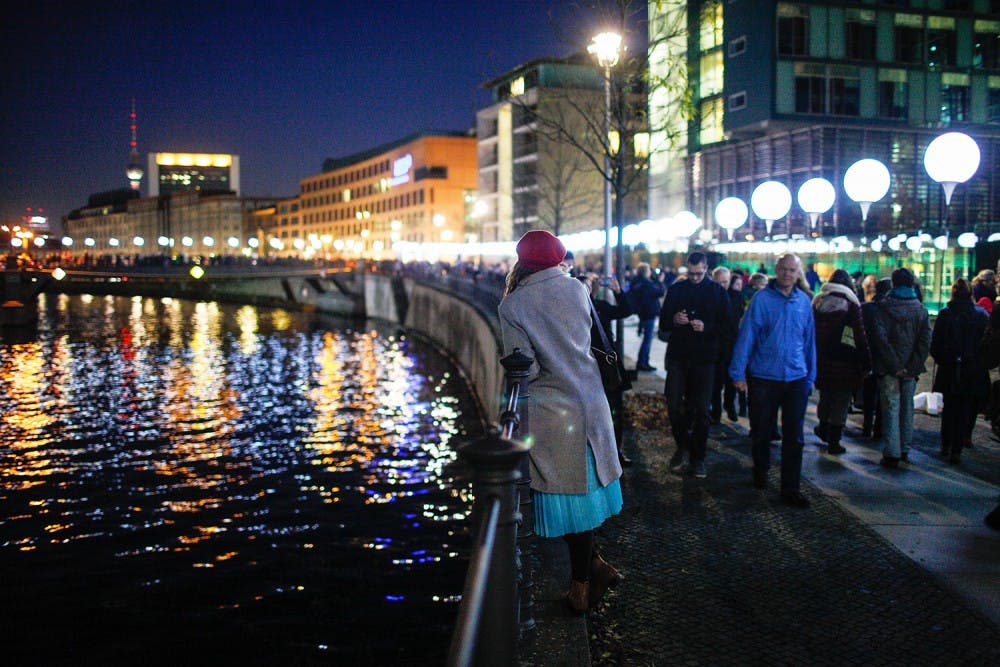Sunday marked the 25th anniversary of the fall of the Berlin Wall. The wall, built on Aug. 15, 1961, by the government of East Germany, remains one of the most powerful symbols of the Cold War. Konrad H. Jarausch, UNC Lurcy Professor of European Civilization, spoke with The Daily Tar Heel staff writer Jungsu Hong about the anniversary of the fall.
THE DAILY TAR HEEL: Could you give me a brief rundown of the wall being erected and its original purpose?
KONRAD JARAUSCH: It was erected in August 1961 as a response to the great number of Eastern citizens who were moving through Berlin in order to get out of western Germany. It was a safety valve, and the communist dictatorship wanted to stop that, so the wall was built.
DTH: How is Nov. 9 a significant date in German history?
KJ: At the end of the First World War, around Nov. 9, there was a revolution that kicked the Kaiser out. In 1938, there was Kristallnacht (“Night of Broken Glass”), where they beat up Jews and torched synagogues. Also on Nov. 9, the Berlin Wall opens up again, because of a combination of pressure from the population and a reform attempt of the government that was bundled. The Berlin party chief, who announced it on television, mumbled something because he hadn’t been told what to say, and when asked when it would be opened said, “Immediately.” The Western journalists interpreted it as people could go through the border right after the announcement, but it really meant that people had to apply to cross, but permission would be given more liberally.
DTH: What political and societal factors led to the coming down of the wall?
KJ: There was a snowball effect, and when the first border crossing was opened, Tom Brokaw of NBC News was with a television crew standing in front of the Brandenburg Gate. All border crossing points that had been controlled were opened and a gigantic party happened — strangers were kissing each other, flowers brought to border police, champagne bottles popped, cars honking at each other.
In Russia, (Soviet leader Mikhail) Gorbachev was asleep — two hours ahead in Russia — so his assistants didn’t dare wake him up, and he woke up the next morning to an open Berlin Wall. The only way to close it again was bloodshed, but it would be against Russian reform attempts. The process was out of control. People had already taken over. The fall of the wall wasn’t by famous opposition leaders; it was by popular process.
DTH: Do you have any personal memories related to the fall of the Berlin Wall?



